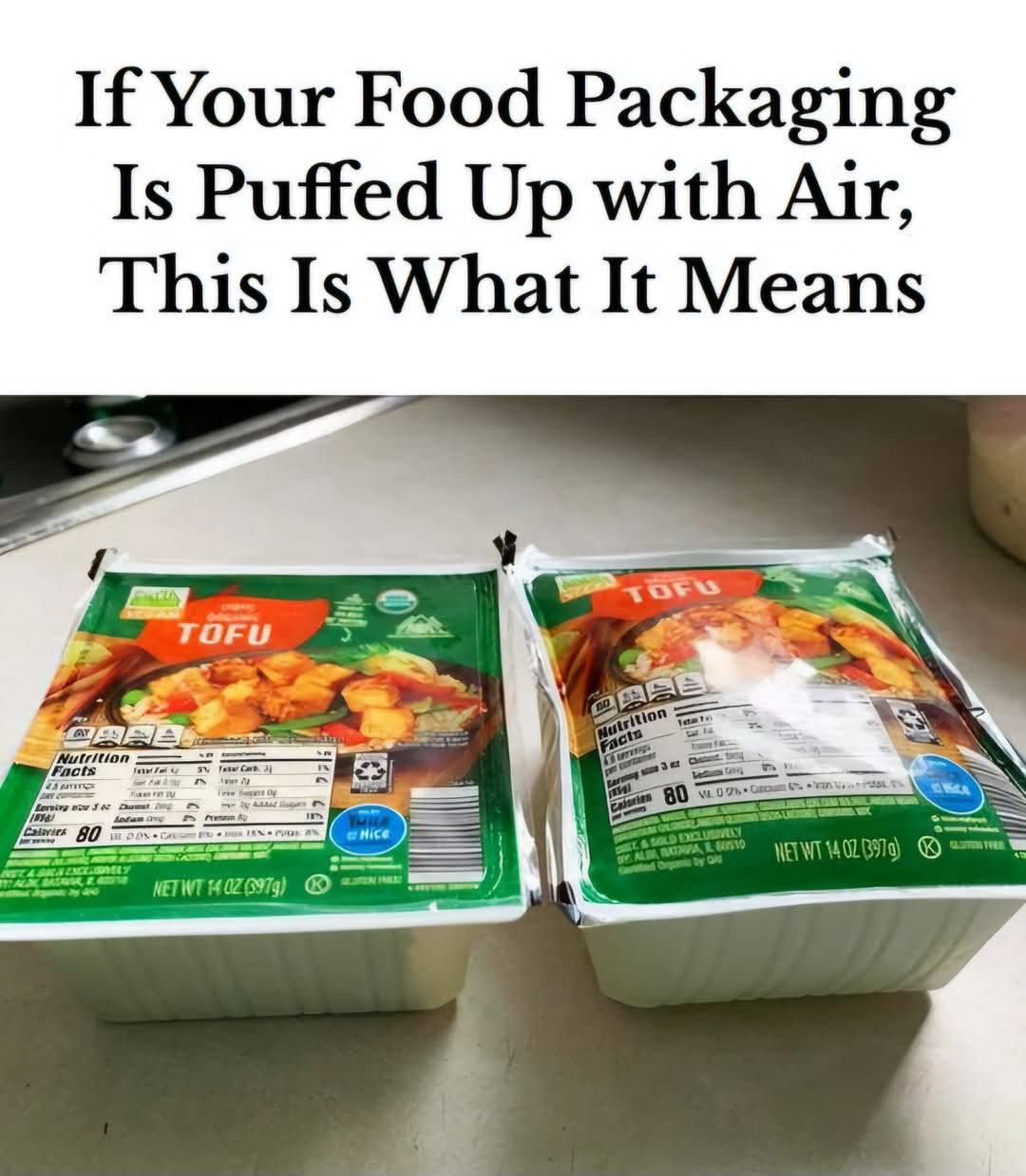The Hidden Danger Behind Swollen Food Packaging
Have you ever reached into your pantry or fridge and noticed a food package puffed up like a balloon? While bags of chips are intentionally filled with air to protect the contents, unexpected swelling in other food packaging is often a warning sign you shouldn’t ignore. It’s not just a quirky packaging issue—it could mean your food has become a breeding ground for harmful bacteria or undergone unwanted chemical reactions.
Understanding what causes food packaging to swell and knowing when it’s unsafe to eat can protect you and your family from potential health risks.

Why Do Food Packages Swell?
Swollen food packaging can occur for a few key reasons:
- Bacterial Activity: Harmful bacteria, such as Clostridium botulinum (linked to botulism) or Escherichia coli (E. coli), can grow in improperly stored or spoiled foods. These bacteria produce gases that cause packaging to inflate.
- Chemical Reactions: Sometimes, interactions between food ingredients or between the food and its packaging material can create gas buildup.
- Temperature Changes: When perishable items are stored at incorrect temperatures, microbial activity accelerates, leading to gas production and swelling.
Understanding these causes can help you quickly identify whether that bloated package in your fridge is a minor anomaly or a potential health hazard.
When Is Swollen Packaging Dangerous?
Not every inflated package means immediate danger, but some are clear red flags. Here’s how to assess the risk:
- Canned Foods: Bulging or swollen cans are a serious warning sign. They could indicate botulism, a rare but life-threatening illness caused by Clostridium botulinum. Discard them immediately—don’t even open them.
- Vacuum-Sealed Items: If a vacuum-sealed package appears puffed up instead of tightly sealed, bacterial contamination is a strong possibility.
- Fermented Products: Foods like kimchi or yogurt naturally produce some gas during fermentation. A little bloating is normal, but excessive swelling could signal spoilage.
How to Check if Swollen Packaging Is Safe
Before deciding to eat or discard food from an inflated package, follow these safety checks:
- Check the Expiration Date: If the product is past its “use by” date, don’t take the risk.
- Inspect the Packaging: Look for damage, including leaks, holes, or tears. Compromised packaging increases the chance of bacterial contamination.
- Smell the Product: If you can detect a sour, rotten, or unusual odor through the packaging, it’s a clear sign the food is spoiled.
- Review Storage Instructions: Ensure the food was stored according to the manufacturer’s recommendations. Perishables left out at room temperature for too long are often unsafe to eat.
When in doubt, don’t taste the food to “see if it’s okay”—contaminated food can still look and smell fine while being dangerous to eat.
How to Prevent Bloated Food Packaging
Taking a few simple precautions can reduce your chances of encountering swollen food packages:
- Store Food Properly: Follow recommended refrigeration and freezing guidelines for perishable products.
- Be Selective When Shopping: Avoid purchasing products with visible swelling, damage, or broken seals.
- First In, First Out Rule: Use older food items before newer ones to minimize spoilage.
- Cautious Discounts: Heavily discounted perishable items might be nearing their expiration date. Inspect them carefully before buying.
Health Risks of Eating Food from Swollen Packages
Consuming food from inflated packaging can result in serious health consequences. Foodborne illnesses caused by bacteria like E. coli or Clostridium botulinum can cause symptoms such as:
- Nausea and vomiting
- Diarrhea
- Abdominal cramps
- Fever
In severe cases, botulism can lead to paralysis or even death if left untreated. It’s simply not worth the risk.
When in Doubt, Throw It Out
No meal is worth risking your health over. If you’re unsure whether a bloated package is safe, err on the side of caution and discard it. Proper food safety is about prevention, and avoiding swollen packages is a small but essential step in protecting yourself and your loved ones.
The next time you spot an inflated food package in your pantry or fridge, remember: safety comes first. When it comes to spoiled food, it’s always better to be safe than sorry.





